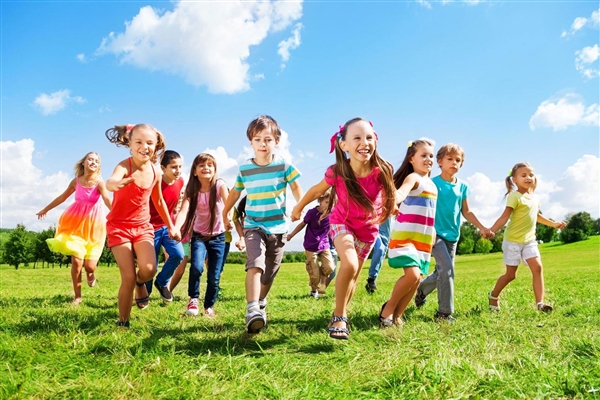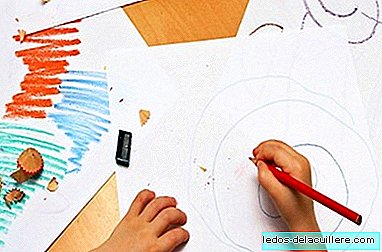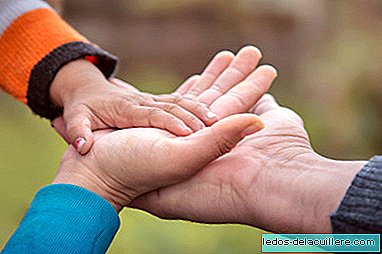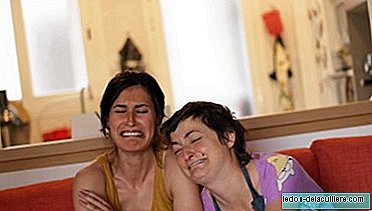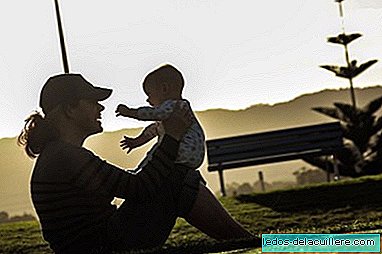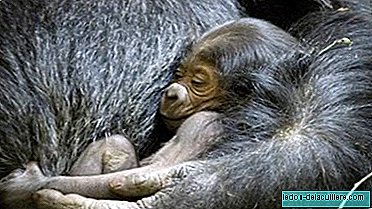
The human puppies They are not made to live locked up, it is against their nature to be still, alone, in silence and tied to their rocker for a long time. No, they are not born to be on floors or in strollers most of the time. They need the outdoors, a tribe, to accompany their mother day and night in all their tasks, to go around seeing the world from our height and play on the ground with our company.
Of course, they are not programmed to be raised by a mother who is alone almost all the time, much less by a caregiver who is not from her family and who has 3 or 4 or more babies in her care. This is a biological and ethological reality in which all specialists will be satisfied, but that clashes with the different cultural solutions that human beings have given to parenting.
Mothers and current fathers find themselves, many times, overwhelmed by a thousand problems in parenting, things that would astonish people from other cultures or from other times but that we are very worried about: the baby asks for arms, the baby wakes up , the baby asks for a tit every half hour, the baby does not want to stay in the nursery, are examples of this.
And it is that we strive to demand from babies things that are not in their nature like mammal and primate puppies. And that, due to many advances in modern society, cannot be changed. We are what we are.
What our human puppies do not want
Our human puppies They don't want to sleep in their cribs apart from us. Of course, it is that their nature indicates that they should sleep, like the rest of the primates, hugging their mother and drinking tit. Sleeping in another room is an invention of today's Western society. Nothing bad has ever happened to children for sleeping with their parents, no strangers or less independent. In fact, human children have always slept with their parents. It is part of the History of Humanity and one of our characteristics as a species.
Our babies do not want to stay in the stroller quietly and make noise so that we can take them in their arms. Of course, the human baby cannot move on his own and instinctively he knows that if he is left alone he could be devoured, so he will try to take it with carantantos, be it with desperate cries.
And since they can't walk, they can't even hold onto our non-existent fur like naked monkeys, because they'll need us to carry them in their arms and all their instincts claim it. They are like that, it is not evil, it is not manipulation, it is not an urge to annoy, it is not bad education. It is his nature, his reality. Humans are like that. Human babies are of a species that carries their children in their arms since the dawn of time. All the advances of modern society will not change what babies need to feel safe and happy instinctively.
Our babies get bored sovereignly at home and demand continuous attention to get distracted. In order to do our things we end up putting them in the little park until they no longer complain or we put them in front of the television. We cannot handle the situation and, even if we behave at home and the child accompanies us in all tasks, it ends up being boring and a bit tiring. And we are not made to breed alone.
The natural human species
Our species did not form in nuclei of nuclear families in sealed compartments. Our species is a species of tribes, in which men and women of all ages, in groups of about 30 relatives, gathered near a settlement that would vary from time to time, following the fruits or hunting.
In those groups the women would have children in a spaced way, helped by prolonged demand breastfeeding and periodic difficulties, and also, sadly, by high infant mortality.
If you have to carry the baby in your arms all the time, it does not make sense to have several children in a row even if you can count on help for transportation and care. Human children would be autonomous in their movements towards four years and it is precisely from these ages, and not before, when they are able to assume the arrival of a brother understanding better what it will mean and being able to delay their demands. It is also from these ages when weaning would take place gradually taking even to be definitive until the age of seven, which is when the signs of advanced dentition appear and when the immune system fully matures.
Our children are jealous, many of them suffer greatly when a little brother arrives. And that suffering does not seem that it should be so intense if having a little brother was something for which his emotional evolution prepared them. Possibly the fact that the human child needs the attention of an almost continuous adult until approximately four years old has something to do with these intense emotions. An ancestral human mother would not have another baby until the elder did not reach an age when she could do without it for a longer time a day and that is why it is so difficult for our children to adapt to the arrival of a little brother when they are very young. It is understandable if we understand its nature and, understanding it, surely we can help you better cope with those changes if the second baby arrives quickly.
In the original human groups mortality would be high and life expectancy very short. But there were fathers and mothers, teenagers, children of various ages and a few old people. Everyone helped and took care of themselves, although they were probably not very kind to strangers. Children interacted with everyone all the time, did not learn in theaters with many children of the same age and an adult from another unknown family group. That's why nurseries cost them so much and there are conflicts, really the human baby is not made to be with so many babies of the same age at the same time and with so few adults. It is not his nature.
The mother gave birth attended by women in his environment he trusted, not by strangers. As children, they had helped raise other children and learned a lot about breastfeeding and baby care. In the puerperium the love hormone flooded them, without external interference. And possibly, if all was well, I would live the process calmly, together with her young, and then be accompanied by her comadres. When she was recovered and joined the group they were never alone, there were friendly arms that surrounded and collaborated with them. They did not spend the whole day in an apartment stuck or alone with their son. That is why this loneliness of the floor depresses and exhausts our children so much.
We need comadres, we need a tribe, but we don't know how to build it again, with people who make us feel safe and confident, respected in our motherhood but supported. Is it really impossible to find that human group that completes us?
Conclusion
Sometimes culture and society take us away from the happiness we can only feel if that society does not deny our natural origins and impulses. It is not a matter of returning to the caverns or wasting the advantages of a more comfortable life, but connecting with ourselves and not breaking with the emotional needs that characterize us as complex beings, humans, primates, mammals, tribal, with absolutely defenseless attached offspring and big brains to develop. Civilization should not violate our nature and many of our conflicts and problems are born precisely when what society marks us clashes with basic instincts, needs and emotions.
For that reason we will continue talking about the subject. Starting from that the human puppies they are mammals and primates with naturally programmed needs and characteristics and that we also need certain things in our environment to enjoy breeding, surely we can give each other ideas to make modernity and nature compatible as much as possible. There are historical, anthropological and ethological studies that can give us clues in this regard.


